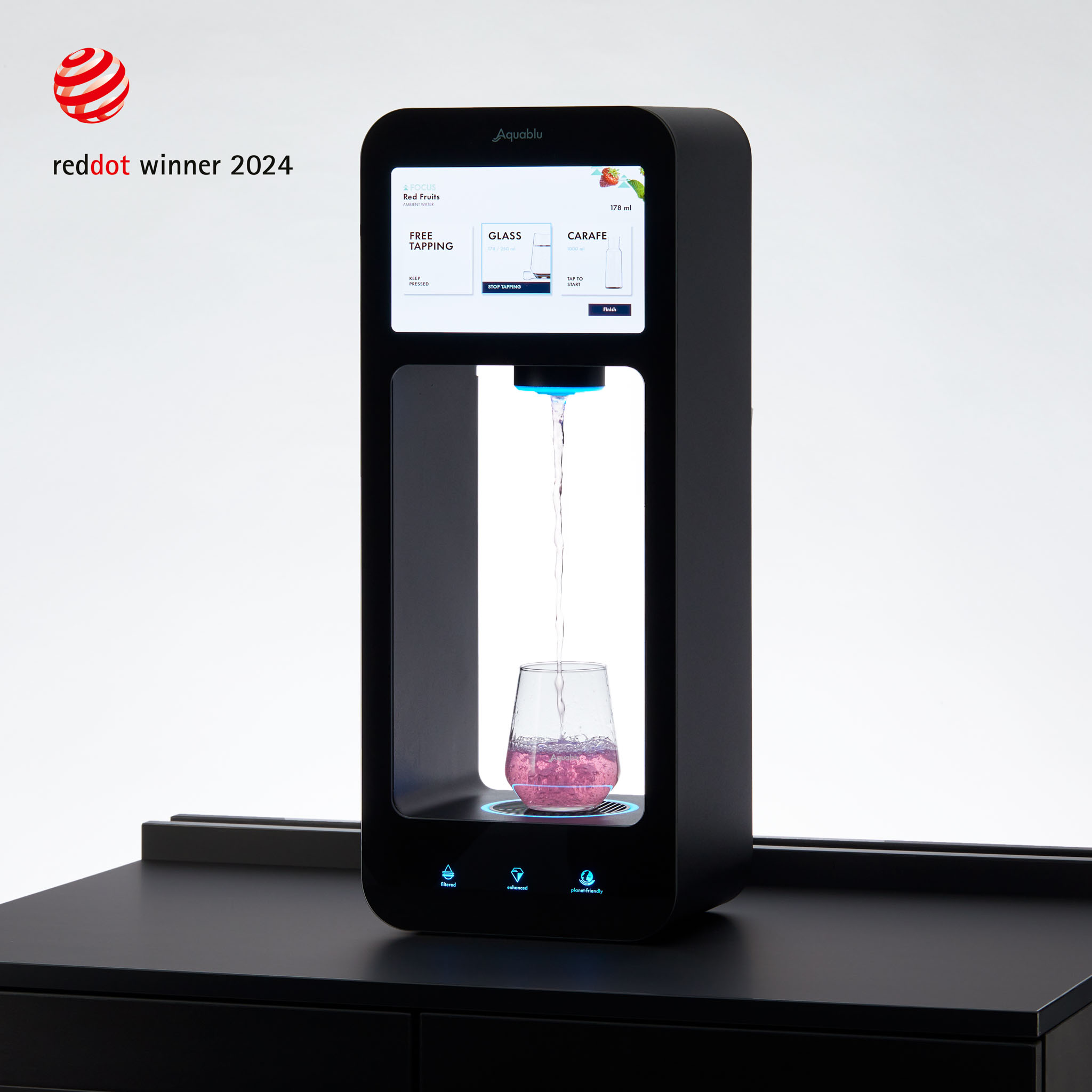Types of sustainability certifications
Types of sustainability certifications
4 min
4 min
4 min
|
|
|
4 min
|



Earlier, we wrote about the new corporate sustainability reporting directive from the European union and how they increase a company’s accountability, prevent divergent sustainability standards and ease the transition to a more sustainable economy. Sustainability certifications are part of this transition to a sustainable future. But what sustainability certifications are there? And what is their purpose? You read it in this blog.
WHAT IS SUSTAINABILITY CERTIFICATION?
Sustainability certification is a way for businesses, organizations, and products to demonstrate their commitment to environmentally and socially responsible practices. These certifications can provide consumers with assurances that the products they purchase or rent have been produced in a way that minimizes negative impacts on the environment and supports the well-being of employees and communities.
A recent study even showed that office buildings that have sustainability certifications have an average of 21% higher rental income.






TYPES OF SUSTAINABILITY CERTIFICATIONS
There is a wide variety of sustainability certifications (also; green certifications). There are many different sustainability certification programs available, each with its own specific criteria and focus areas. Some examples include:
LEED (Leadership in Energy and Environmental Design): This certification is focused on the design, construction, and operation of buildings and infrastructure. To achieve LEED certification, projects must meet high standards for energy efficiency, water conservation, and other sustainability criteria.
Fair Trade: This certification is focused on improving the lives of workers in developing countries through fair wages and working conditions. Fair Trade certification is commonly used for products such as coffee, cocoa, and clothing.
Forest Stewardship Council (FSC): This certification is focused on responsible forestry management. Products that are FSC certified come from forests that are managed in a way that preserves biodiversity, protect the rights of local communities, and reduce the impact on the environment.
Rainforest Alliance: This certification is focused on protecting biodiversity and promoting sustainable agriculture. Rainforest Alliance certified products come from farms that meet rigorous standards for protecting the environment, wildlife, and the well-being of workers.
Sustainability certification can be a valuable tool for businesses and consumers alike. For businesses, it can provide a way to differentiate themselves in a crowded market and demonstrate their commitment to responsible practices. For consumers, it can provide a way to make more informed purchasing decisions and support companies that are working to minimize their environmental and social impacts.
IN CONCLUSION
In conclusion, sustainability certification is a way for businesses and products to show their commitment to environmentally and socially responsible practices. There are many different certification programs available, each with its own focus areas, and these certifications can provide valuable information for both businesses and consumers and have a positive effect on the environment.
Want to be the first to receive important updates and stay tuned? Subscribe to our newsletter.
Subscribe to newsletter
TYPES OF SUSTAINABILITY CERTIFICATIONS
There is a wide variety of sustainability certifications (also; green certifications). There are many different sustainability certification programs available, each with its own specific criteria and focus areas. Some examples include:
LEED (Leadership in Energy and Environmental Design): This certification is focused on the design, construction, and operation of buildings and infrastructure. To achieve LEED certification, projects must meet high standards for energy efficiency, water conservation, and other sustainability criteria.
Fair Trade: This certification is focused on improving the lives of workers in developing countries through fair wages and working conditions. Fair Trade certification is commonly used for products such as coffee, cocoa, and clothing.
Forest Stewardship Council (FSC): This certification is focused on responsible forestry management. Products that are FSC certified come from forests that are managed in a way that preserves biodiversity, protect the rights of local communities, and reduce the impact on the environment.
Rainforest Alliance: This certification is focused on protecting biodiversity and promoting sustainable agriculture. Rainforest Alliance certified products come from farms that meet rigorous standards for protecting the environment, wildlife, and the well-being of workers.
Sustainability certification can be a valuable tool for businesses and consumers alike. For businesses, it can provide a way to differentiate themselves in a crowded market and demonstrate their commitment to responsible practices. For consumers, it can provide a way to make more informed purchasing decisions and support companies that are working to minimize their environmental and social impacts.
IN CONCLUSION
In conclusion, sustainability certification is a way for businesses and products to show their commitment to environmentally and socially responsible practices. There are many different certification programs available, each with its own focus areas, and these certifications can provide valuable information for both businesses and consumers and have a positive effect on the environment.
Want to be the first to receive important updates and stay tuned? Subscribe to our newsletter.
Subscribe to newsletter
TYPES OF SUSTAINABILITY CERTIFICATIONS
There is a wide variety of sustainability certifications (also; green certifications). There are many different sustainability certification programs available, each with its own specific criteria and focus areas. Some examples include:
LEED (Leadership in Energy and Environmental Design): This certification is focused on the design, construction, and operation of buildings and infrastructure. To achieve LEED certification, projects must meet high standards for energy efficiency, water conservation, and other sustainability criteria.
Fair Trade: This certification is focused on improving the lives of workers in developing countries through fair wages and working conditions. Fair Trade certification is commonly used for products such as coffee, cocoa, and clothing.
Forest Stewardship Council (FSC): This certification is focused on responsible forestry management. Products that are FSC certified come from forests that are managed in a way that preserves biodiversity, protect the rights of local communities, and reduce the impact on the environment.
Rainforest Alliance: This certification is focused on protecting biodiversity and promoting sustainable agriculture. Rainforest Alliance certified products come from farms that meet rigorous standards for protecting the environment, wildlife, and the well-being of workers.
Sustainability certification can be a valuable tool for businesses and consumers alike. For businesses, it can provide a way to differentiate themselves in a crowded market and demonstrate their commitment to responsible practices. For consumers, it can provide a way to make more informed purchasing decisions and support companies that are working to minimize their environmental and social impacts.
IN CONCLUSION
In conclusion, sustainability certification is a way for businesses and products to show their commitment to environmentally and socially responsible practices. There are many different certification programs available, each with its own focus areas, and these certifications can provide valuable information for both businesses and consumers and have a positive effect on the environment.
Want to be the first to receive important updates and stay tuned? Subscribe to our newsletter.
Subscribe to newsletter
TYPES OF SUSTAINABILITY CERTIFICATIONS
There is a wide variety of sustainability certifications (also; green certifications). There are many different sustainability certification programs available, each with its own specific criteria and focus areas. Some examples include:
LEED (Leadership in Energy and Environmental Design): This certification is focused on the design, construction, and operation of buildings and infrastructure. To achieve LEED certification, projects must meet high standards for energy efficiency, water conservation, and other sustainability criteria.
Fair Trade: This certification is focused on improving the lives of workers in developing countries through fair wages and working conditions. Fair Trade certification is commonly used for products such as coffee, cocoa, and clothing.
Forest Stewardship Council (FSC): This certification is focused on responsible forestry management. Products that are FSC certified come from forests that are managed in a way that preserves biodiversity, protect the rights of local communities, and reduce the impact on the environment.
Rainforest Alliance: This certification is focused on protecting biodiversity and promoting sustainable agriculture. Rainforest Alliance certified products come from farms that meet rigorous standards for protecting the environment, wildlife, and the well-being of workers.
Sustainability certification can be a valuable tool for businesses and consumers alike. For businesses, it can provide a way to differentiate themselves in a crowded market and demonstrate their commitment to responsible practices. For consumers, it can provide a way to make more informed purchasing decisions and support companies that are working to minimize their environmental and social impacts.
IN CONCLUSION
In conclusion, sustainability certification is a way for businesses and products to show their commitment to environmentally and socially responsible practices. There are many different certification programs available, each with its own focus areas, and these certifications can provide valuable information for both businesses and consumers and have a positive effect on the environment.
Want to be the first to receive important updates and stay tuned? Subscribe to our newsletter.
Subscribe to newsletter
SUBSCRIBE
TO OUR
Don’t miss out—stay ahead of the wave with new flavors and product launches.
NEWSLETTER
SUBSCRIBE
TO OUR
NEWSLETTER
Don’t miss out—stay ahead of the wave with new flavors and product launches.
SUBSCRIBE
TO OUR
NEWSLETTER
Don’t miss out—stay ahead of the wave with new flavors and product launches.
SUBSCRIBE
TO OUR
Don’t miss out—stay ahead of the wave with new flavors and product launches.
NEWSLETTER
SUBSCRIBE
TO OUR
Don’t miss out—stay ahead of the wave with new flavors and product launches.